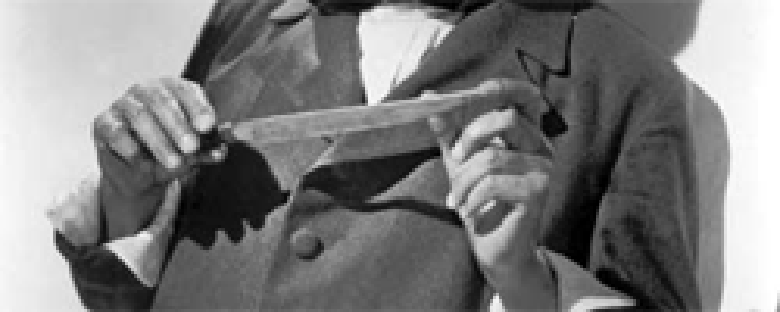Reviews
Doctor from Seven Dials
Robert Day
UK, 1958
Credits
Review by Rumsey Taylor
Posted on 22 April 2007
Source The Criterion Collection DVD
Related articles
Reviews: The Atomic Submarine
Reviews: First Man Into Space
Reviews: The Haunted Strangler
A whimpering patient is wheeled in to an auditorium and belted to an operating table. Lime is scattered around the perimeter along with collecting bowls, a table displaying an array of surgical knives is nearby. Dr. Thomas Bolton stands above the patient’s tourniquetted left leg and announces “the absolute necessity for speed” in amputation. He proceeds with a deep incision. The victim erupts in agony.
This is in 1840, the title card disclaiming: Before the discovery of Anesthesia. Dr. Bolton is an assured man, renowned for his determination, speed, and philanthropy. He will host free medical attention to the underprivileged, and makes house calls when the circumstances are urgent, even if uncompensated. But despite his geniality he cannot reduce his patients’ pain. Visiting a lodging house entitled the Seven Dials, he comes upon his patient from the opening scene. The man clutches his nubbed thigh, aiming it in a grotesque display toward those who glance in his direction. His face is still frozen in shock.
The sight troubles Bolton considerably, and he determines to improve his surgery. His experiments last late into the night in his attempts to concoct an anesthesia, mixing chemicals, boiling them, and inhaling the vapor. (Bottles marked NITROUS OXIDE and OPIUM prominently strew his study; it is fairly assumed that these will become central ingredients.) Late one evening he begins cackling manically, summoning his niece from her sleep. In the frenzy, he cuts his left hand deeply, and raises the wound to his face, his laughter ceaseless. His niece consoles him, noting his success—one that will soon foster deep repercussions.
The following morning he hastily stages a demonstration (another amputation) for his discovery, and it fails miserably, the test patient awakening the moment the knife touches his skin. (And in an anesthesia-induced frenzy familiar to the viewer, the patient proceeds to run about the room and attack any man attempting to collect him.) Bolton is ridiculed, and opts for more experimentation. Bolton is an exceptionally mannered man, and anesthesia induces his mania; he becomes an addict. He inhales his concoction in greater doses and with new ingredients, in each instance his mania running deeper and longer, often lasting the entire night. He awakens the following morning, his hair sprouted in all directions, and resumes his research with greater fatigue.
Bolton’s chief motivation derives from one of his colleagues who declares that “pain and the knife are inseparable.” His obsession to disprove this becomes indistinguishable from the fever dreams — which he never remembers — induced by his concoctions. The addiction manifests Bolton’s second persona, a man who has the essential features of Bolton’s unembellished self but with a fervent mania. Once a user, he becomes indefatigably intent to prolong the effects of his self-prescription; once sober, his experimentation and desire for validation become prone to the increasing toll of his fatigue. What results is an iterative spiral of drug use in which both of Dr. Bolton’s selves — the sober and increasingly exhausted pharmacist, and the maniacal drug addict — become less stable. Recognition of the validity of his experiments would save him, but the greater his doses become the greater the risk that he may never welcome this recognition in his lifetime. Bolton’s research may or may not go heralded; his is a sacrifice, demonstrating the extent of his philanthropy at the expense of every professional and personal relationship he has.
Boris Karloff imbues Dr. Bolton’s transformation with some nuance, despite the film’s allusions to Dr. Jekyll and Mr. Hyde. Bolton’s monster’s sole violence is directed expressly toward himself, his transformation more internalized than outwardly expressed (although, along with The Haunted Strangler, disheveled hair invariably characterizes his medicated self). And despite Corridors of Blood’s unpretentious foundation as a B-movie, it retains a responsibility and restraint uncharacteristic of its ilk. Bolton is both the film’s monster and martyr, his self-immolation an insurance for the solace of future patients.
We don’t do comments anymore, but you may contact us here or find us on Twitter or Facebook.



